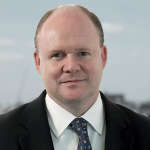After a series of failed merger talks, the surprise takeover of beleaguered West End firm Davenport Lyons by Gordon Dadds is, according to Gordon Dadds’ managing partner Adrian Biles, indicative of the wider strain that firms will start to feel as the recovery kicks in.
The timing of the takeover was swift. Monday 28 April brought the announcement that Gordon Dadds had bought the client database, the lion’s share of assets and brought over the majority of Davenport’s partnership, in a pre-pack deal that took place before anyone outside of the two firms or Baker Tilly was aware that the firm had gone into administration on Friday 25 April.
Interestingly, it was Wikipedia that first gave any hint of the administration, having been updated over the weekend to read: ‘Davenport Lyons was a London-based law firm that entered into administration on 25 April 2014.’
Even Twitter was silent first thing on Monday, save for one question from @keziz: ‘Is it true about Davenport Lyons? Odd new line in their Wikipedia entry – not that that is always reliable!’
In this case, it was. The terms of the sale were agreed in the week running up to 25 April by Baker Tilly as joint administrator. A spokesman from Davenport Lyons confirmed: ‘As of close of business on Friday 25 April, the legal entity known as Davenport Lyons ceased trading and the majority of the company’s client balances, work in progress and client files have been transferred to Gordon Dadds, who will also be collecting debtor balances on behalf of the administrator.’
Davenport Lyons has around 73 fee-earners, in addition to its 42 partners, and 80 staff including 30 partners will transfer to Gordon Dadds.
Chief executive Richard Williams has still not so far agreed to move across to Gordon Dadds, although negotiations are on-going.
Biles said: ‘It would be correct to say that Richard Williams will not be CEO of Gordon Dadds, but whether there is a role for him somewhere in the group moving forward is still in negotiation.’
Davenport’s pursuit of a merger –with Shakespeare’s last December and most recently HowardKennedyFsi – and declining financials were tell-tale signs, and the firm had been dogged by rumours that it faced administration.
The firm that was once famous for acting on behalf of UK publication Private Eye had struggled for growth in recent times, with its revenues down 11% from £24.5m to £21.9m in 2012/13, while profit per equity partner dropped 12.5% to £197,000. It was acknowledged as a first-tier firm by the Legal 500 in the media and entertainment industry, but went onto subsequently get rid of its film and TV group last November.
In July last year it moved into new offices in the West End, taking 31,500 sq ft over three floors at 6 Agar Street in Covent Garden – with the cost of too much expensive real estate understood to have contributed to its downfall.
The timing of the collapse is almost counterintuitive, with the firm having just about ridden out one of the worst recessions in history, however Biles, who is careful in his responses, says: ‘As the economy comes out of recession and business increases, the working capital requirement of firms who are building up working processes and as debt increases, it is probably now that the strain will show on firms with cash flow difficulties than a firm at the beginning of the recession.’
With an objective to spend the next three to four months planning the integration, Gordon Dadds, which last year merged with City-based litigation and corporate firm Harris Cartier, hasn’t yet made any decisions on premises in the short term and is currently in talks with the landlord at Agar Street.
The Mayfair firm needs to upsize and Biles adds: ‘We wanted a firm in particular that had too much space. It obviously wasn’t able to utilise the space that it had. That was a great opportunity for us.
‘The minimum size or critical mass for a law firm keeps getting larger. What might have been feasible to generate £1m ten years ago is now not feasible. And the critical mass size keeps increasing as the regulatory burden increases. As competition increases you have to be larger to be profitable and to survive.’
The combined firms’ growth strategy, Biles says, is to become a top 100 UK firm, which on current figures it falls just short of. Early estimates put the combined revenue of the firms at £20m, which is less than Bristol-based Veale Wasbrough Vizards generates at LB100, with a turnover of £22.4m.
Biles is optimistic: ‘People are increasingly positive despite massive disruption over negotiations over the last few months. It’s been very difficult for people at Davenport. The mood in the enlarged firm is positive. As the personnel becomes resolved, the direction of the firm becomes clear, and everybody feels comforted by that security.’
Sarah.downey@legalease.co.uk














